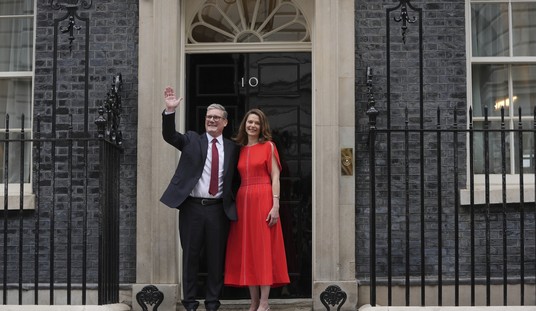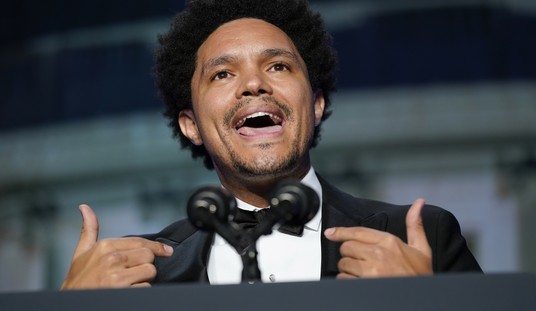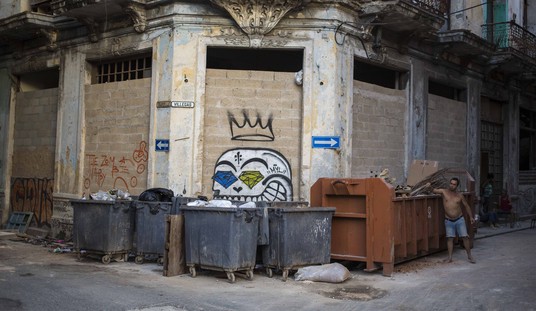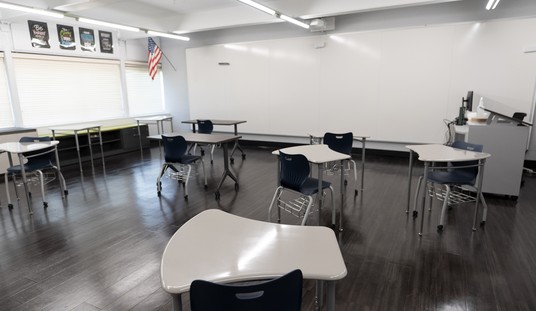The release of a majority report from the House Intelligence Committee investigation into Benghazi, started long before Speaker John Boehner finally called a Select Committee for a comprehensive investigation, provided the media with grist for their narrative that the entire scandal was nothing more than GOP paranoia. It became almost immediately clear that the media hadn’t actually bothered to read the report, as Mollie Hemingway deduced at The Federalist, as the report actually substantiated a number of criticisms of the Obama administration, the CIA and State Department in particular. Noah wrote shortly afterward that any sense of vindication claimed from the substance of the report founders on the clear conclusion that State under Hillary Clinton utterly failed to provide adequate security for a dangerous location, and that the US government under Barack Obama was shockingly unprepared for hostile action on the anniversary of 9/11. “Some victory,” Noah concluded.
All of the above analysis is based on a straightforward acceptance of the HIC report, though. Stephen Hayes takes a much closer and critical look at the document for The Weekly Standard, and finds huge holes in the work — and blames it on the outgoing chair of the committee, Mike Rogers:
Rogers had long been reluctant to commit more time and resources to investigating Benghazi. At a meeting of intelligence committee Republicans in early 2013, just four months after the attacks, Rogers laid out his priorities for the new Congress. Not only was Benghazi not on that list, according to three sources in the meeting, he declared to the members that the issue was in the past and that they wouldn’t be devoting significant time and resources to investigating it. Whatever failures there had been in Benghazi, he explained, they had little to do with the intelligence community, and his intelligence committee would therefore have little to do with investigating them.
In the months that followed, more troubling details about the Benghazi story emerged in the media. Among the most damaging: Internal emails made clear that top Obama administration officials had misled the country about the administration’s role in the flawed “Benghazi talking points” that Susan Rice had used in her Sunday television appearances following the attacks, and that former acting CIA director Michael Morell had misled Congress about the same. Other reports made clear that intelligence officials on the ground in Benghazi had reported almost immediately that the assault was a terrorist attack involving jihadists with links to al Qaeda—information that was removed from the materials used to prepare administration officials for their public discussion of the attacks. A top White House adviser wrote an email suggesting that the administration affix blame for the attacks on a YouTube video.
The revelations even roused the establishment media from their Benghazi torpor and generated extraordinarily hostile questioning of White House press secretary Jay Carney by reporters who had trusted his claims of administration noninvolvement.
None of this convinced Rogers to make Benghazi a priority—a fact that frustrated many of the committee’s members. Boehner received a steady stream of visits and phone calls from House members who complained that Rogers wasn’t doing his job. In all, seven members of the intelligence committee took their concerns directly to the speaker or his top aides.
The report, Hayes writes, is a product of a slapdash effort to get Benghazi out of the way rather than a serious look at a disturbing intelligence and security failure:
Although it adds to our overall understanding of Benghazi, even a cursory read reveals sloppy errors of fact and numerous internal contradictions. For instance, on one page, the report has a top intelligence officer sending an email from Benghazi on September 15, before a crucial White House meeting on the Benghazi talking points. A few pages later, the report has the same email sent on September 16 and arriving the day after that White House meeting. Elsewhere, the report informs readers that the first CIA assessment of the Benghazi attacks, an Executive Update published internally on September 12, reported that “the presence of armed assailants from the incident’s outset suggests this was an intentional assault and not the escalation of a peaceful protest.” One paragraph later, however, the report tells us that Morell, the agency’s point man on Benghazi, testified that the first word there was no protest came on September 14. And later still we are told that the intelligence community didn’t have confirmation that there was no protest until surveillance video was recovered on September 18—a full week after the attacks.
Those are minor errors, however, compared with the major omissions and mischaracterizations that mar the report. In a section on the controversy over the inaccurate talking points, for example, the committee inexplicably relies on Morell as its key fact witness and arbiter of truth. But nowhere in the body of the report is there even a hint that Morell misled Congress repeatedly about his involvement in those talking points for eight months after the attacks. The report also attempts to clear the CIA of allegations that the agency made personnel sign special nondisclosure agreements related to their work in Benghazi. To do so, the authors ignore public, on-the-record claims of the attorney for those officials directly contradicting that conclusion. Mark Zaid, a veteran national security lawyer representing five CIA officers who served in Benghazi, told The Weekly Standard last year that his clients were presented with nondisclosure agreements that were “legally unnecessary” and intended to send a message. “There is no doubt that the NDAs would not have been presented to them had it not been for Benghazi,” Zaid said at the time. “That is their impression and my analysis based on 20 years’ experience.” Curiously, the report seeks to exculpate a Libyan militia that provided security to the U.S. mission in Benghazi. But doing so requires the authors to omit key evidence that the group was compromised, including video evidence acquired since the attacks of a leader of that militia fighting alongside Ansar al Sharia—the al Qaeda-linked group that took part in the assault on the U.S. facilities.
The report begins by asserting that it is a “comprehensive” look at Benghazi resulting from an intensive investigation of nearly two years. Neither claim is true.
Ron Fournier asked some pertinent questions on Twitter after recommending this as a “must-read”:
Weary as I am of #Benghazi conspiracy theories, this @stephenfhayes take is must-read. Destroys Rogers & report.http://t.co/I7dcNnyZ4O
— Ron Fournier (@ron_fournier) December 5, 2014
Big question not answered in @stephenfhayes #Benghazi story: What was Rogers' motive for tanking #Benghazi report? http://t.co/I7dcNnyZ4O
— Ron Fournier (@ron_fournier) December 5, 2014
Finally, I saw Rogers' report as closure on #Benghazi. I was wrong. Can Gowdy deliver credible report? http://t.co/UzXu477uBf /3
— Ron Fournier (@ron_fournier) December 5, 2014
What we don't need from Gowdy: another hatchet job against the WH (Issa) or a half-hearted effort (Rogers). #Benghazi http://t.co/UzXu477uBf
— Ron Fournier (@ron_fournier) December 5, 2014
This demonstrates the wisdom of a Select Committee approach to Benghazi, helmed by someone with more distance from the intelligence community. If Rogers is guilty of anything, it might be having too protective a mindset for the agencies involved. Gowdy’s a prosecutor by nature, and will have more of an outsider perspective while using the mandate for a broad scope to deliver a big-picture result. Gowdy is anything but “half-hearted,” while demonstrating (at least thus far) a determination to avoid sensationalizing the work his panel is doing on Benghazi. When his committee files its report, it has a wide opening to reclaim both credibility and responsible accountability for House Republicans.
The bigger question at that point will be whether the media bothers to cover it, or whether they’ll just consider the topic closed by the Rogers report — which they didn’t bother to read critically in the first place, if it all.








Join the conversation as a VIP Member